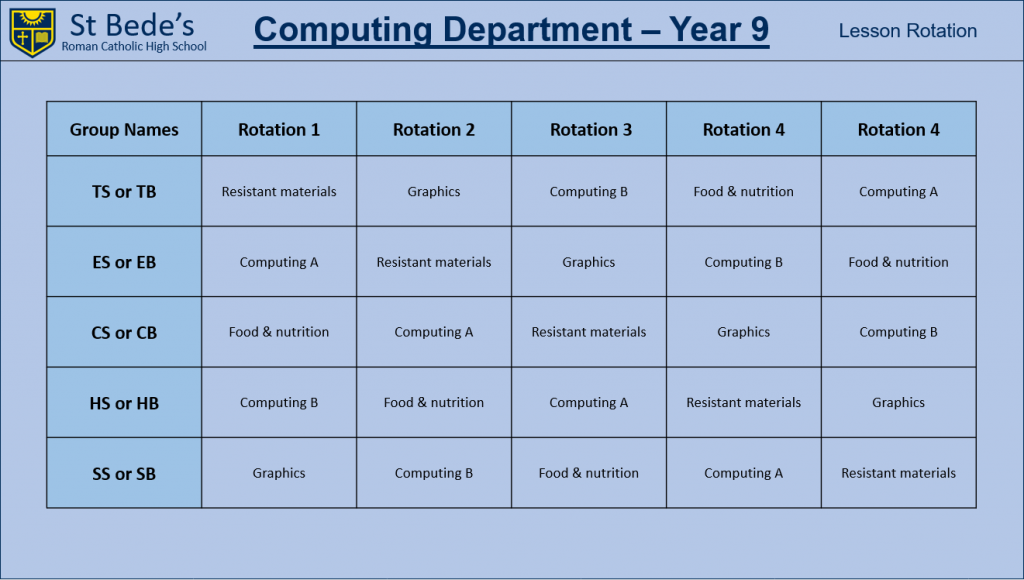At St Bede’s, we believe that all things are possible, and our Computing Department reflects this ethos by guiding and encouraging students to fulfil their God-given potential through the exploration of technology. We inspire our pupils to become the best versions of themselves, using computational thinking and creativity to shape the world around them, while staying true to the values that define our community.
Students will learn the fundamental principles of Computing, exploring how digital systems function, and apply their knowledge through hands-on programming. They will also learn about digital graphics, providing students with the opportunity to plan, create, and evaluate differing types of graphic based products. Students will not only be equipped with technical skills but also learn to live moral lives, grounded in the gospel values of hope, love, forgiveness, and compassion.
St Bede’s computing curriculum ensures that students become digitally literate, enabling them to use technology effectively, express their ideas, and prepare for the future workplace as active participants in today’s digital world.
Students at St Bede’s will study Computing as part of a rotation with other Technologies. Students will study Computing twice a week for eight weeks, before rotating to another technology. To allow enough time to cover the curriculum, students will study Computing twice, labelled below as Computing A and Computing B.


